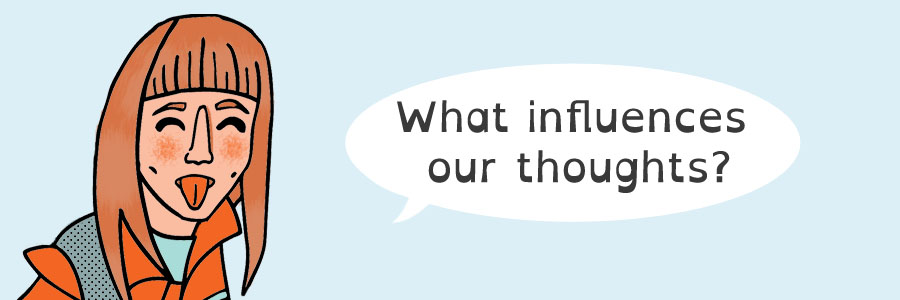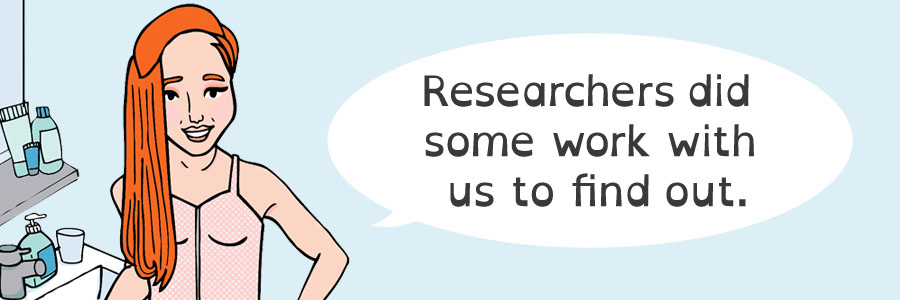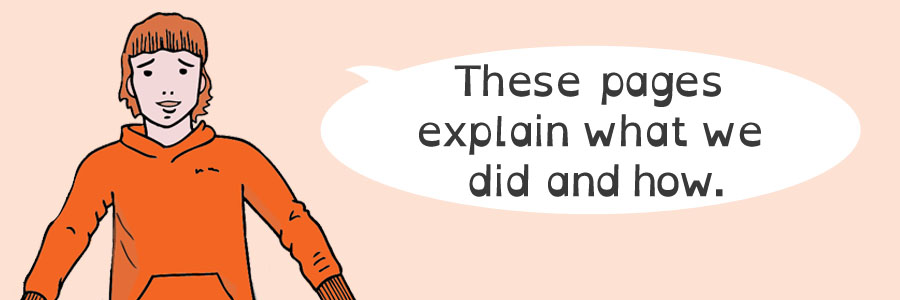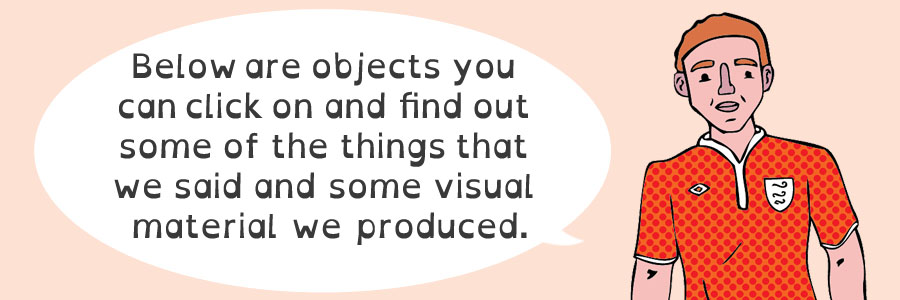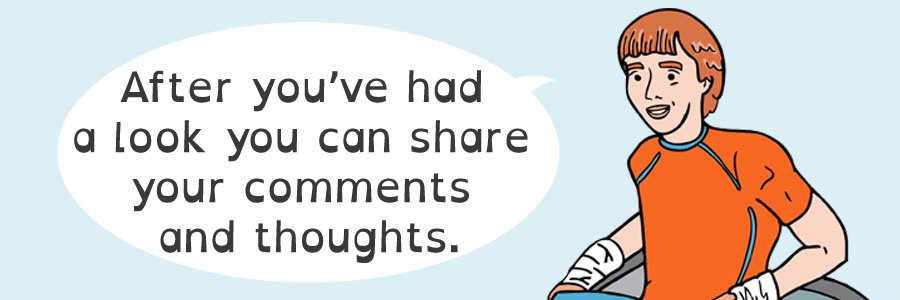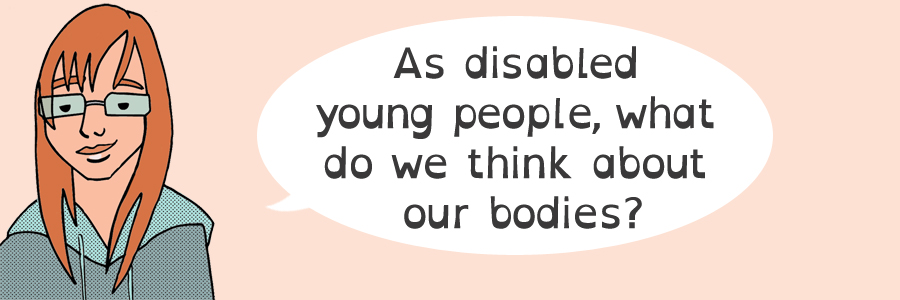 What Do
What Do
The Body Matters Project
The Room

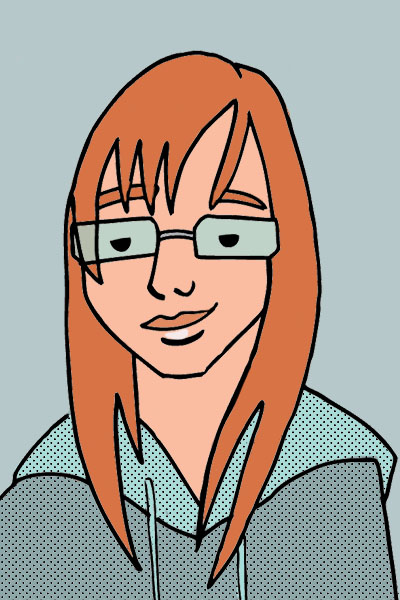 Blue Glasses
Blue Glasses
“I was twelve, thirteen, when I got diagnosed with visual problems. ‘Cos I wasn’t diagnosed, and my mum and dad kept saying at the school there’s something wrong with my reading. It was horrible, very poor. So they checked me again for dyslexia and they went ‘No she’s not got dyslexia, but she might have this other thing.’ And I got tested for that, and it turned out I had. Let me put it this way, if I was diagnosed earlier, when I was smaller, my grades and my levels could have been higher than they are now.
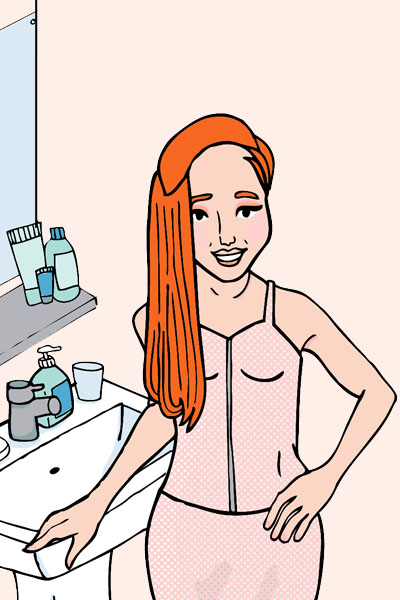 Hairbrush
Hairbrush
“If you said “We can take that disability away from you say tomorrow”, then it would feel a bit strange because one minute I have this disability, the next minute I’ve not and it’ll sort of make you look differently at the world. ‘Cos obviously I could just be normal, continuing my life but then I don’t think I would be the person I am.”
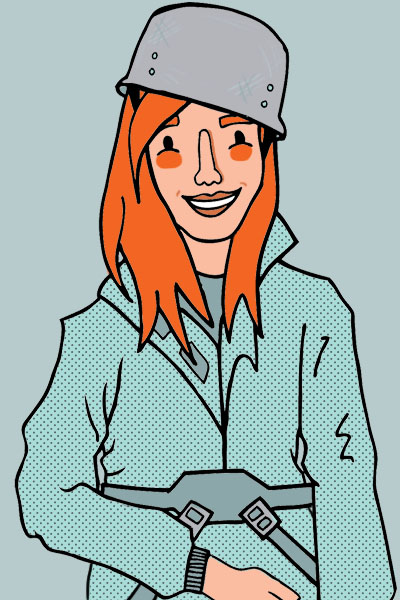 Helmet
Helmet
“Disability doesn’t stop you from doing stuff. If you really want to do something you can do it. It does mean that it’s harder for you, and you have to work more at it, but it doesn’t mean that you can’t do it. You still can do things. It might take you a bit longer to do it, or it might be a bit harder. Doesn’t stop you from doing anything, just means you have to either work longer or work harder or find different ways of doing things.”
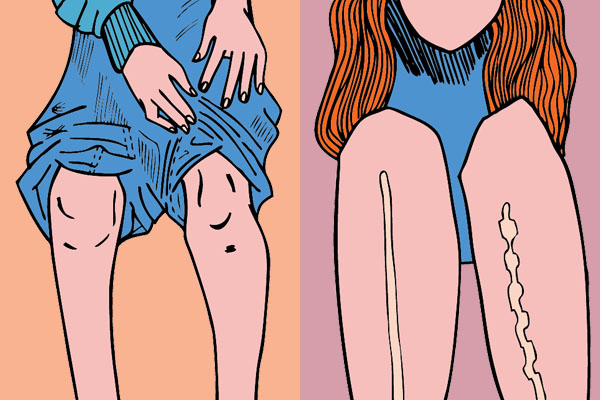 Hospital Bracelets
Hospital Bracelets
“I had four operations. The first was putting plates in my knees and putting cow bone into my foot, those sorts of things really. The second was putting wire into my foot, or taking the wire out, no taking the wire out. So I had wire put in my foot, and taken out, and the third one was having my tendons stretched from my hip to my foot. I’ve got a big scar at the back of my leg, that was quite sore, but yeah I got that over and done with.And then the fourth one was just taking the plates they put in the first time out.”
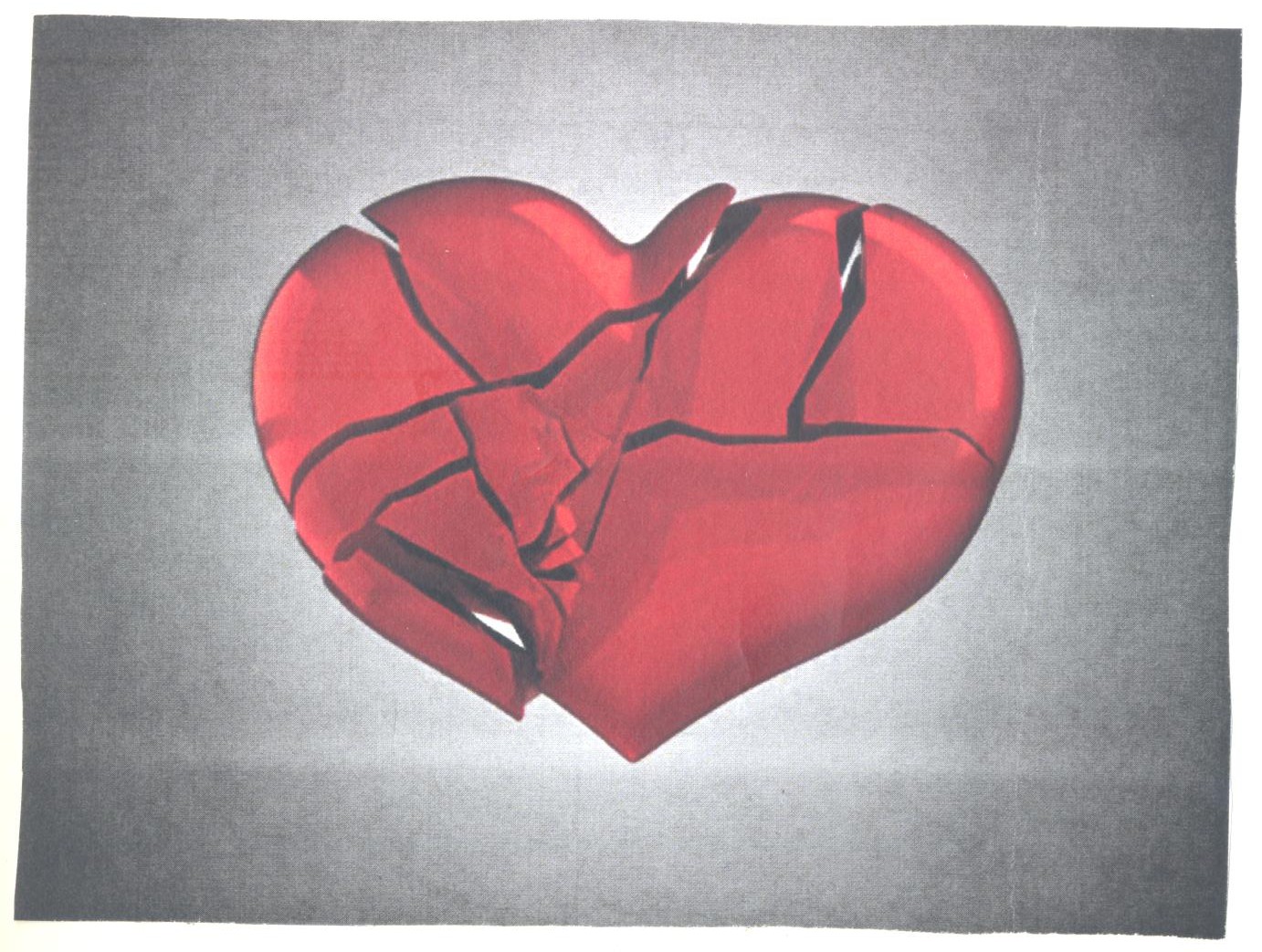 Jewellery Hanging
Jewellery Hanging
“Pain’s not just physical, it’s emotional as well, ‘cos obviously you get pains in your joints and stuff like that which is the physical side of pain, whereas in the emotional side of pain’s, say when something happens, like you get an illness, you’ve got the emotional pain of dealing with that. Pain is not just the physical side it’s the emotional side and how it affects you emotionally as well.”
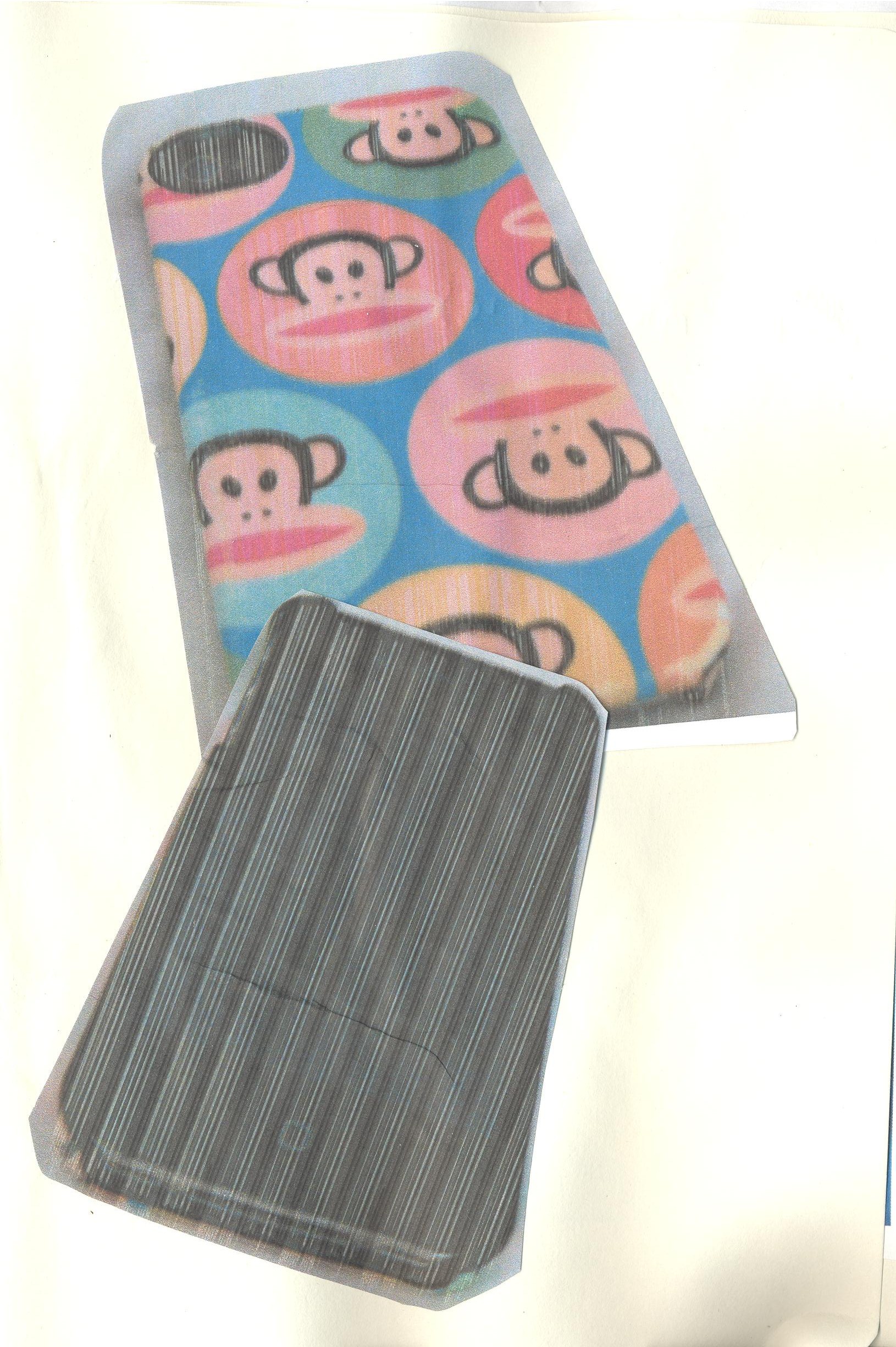 Laptop
Laptop
“Every appointment I have, I put in my phone, ‘cos I’ve not got a very good memory. It’s with us constantly, there’s music on there when I’m travelling and it’s my log so I can keep up to date with things, and make sure I’m at hospital appointments, appointments at college, and social events. I keep in contact with family if I’m on my own somewhere. If it was an emergency, say I did miss the bus or something happened and somebody had to come and get us. I’ve got numbers in there ready.”
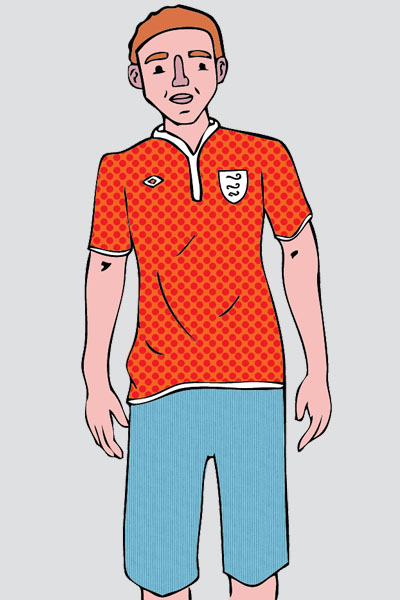 Photo of Boy Standing
Photo of Boy Standing
“I know when I’m gonna get older, I know this is gonna get worse, well when I say older, I’m on about in my fifties, sixties… I know how cerebral palsy is, I’ve seen people… but I’m not thinking about that. That stage for me is years away. But at the moment I know when I get older, I’ll probably be in a wheelchair just because I know how my muscles will be, but to be honest I’m not really that bothered… I take things when they come... That’s all I can do.”
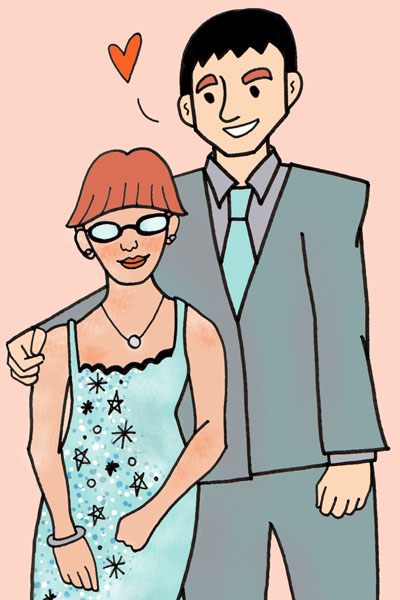 Photo of Boyfriend
Photo of Boyfriend
“My boyfriend helps me a lot. When I went in to hospital he came in to see me every day, and when I came out of hospital he kept texting me saying ‘How are you doing, how was everything’, and he helps me, ‘cos I couldn’t put weight on my legs for a while, till my ankle got strong enough and he used to carry me places. He picks me up like a doll, he thinks I’m a doll I’m sure of it! But he used to help me get up stairs, he helps me walk and got my chair for me, and he got things for me and he supports me quite a lot. Took me out places like on buses and things, shouted at people when they used to call me horrible names.”
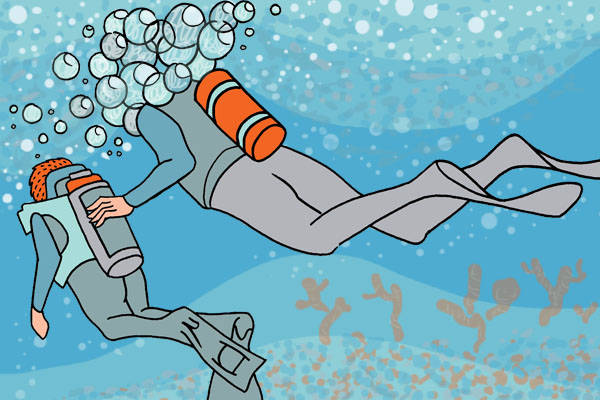 Teddy Bear
Teddy Bear
“My dad goes diving a lot, so I wanted to do it. I love it, surrounded by lovely warm water, lovely plants, gorgeous fish and the sun beating down on the water. It’s pretty really, and relaxing. I feel happy ‘cos I’m with my dad and I’m doing something me and my dad love. Being in the water makes me feel free ‘cos I’m not in pain. The water is holding my body weight, so I can do anything basically. My muscle’s not fighting with each other. It’s lovely.”
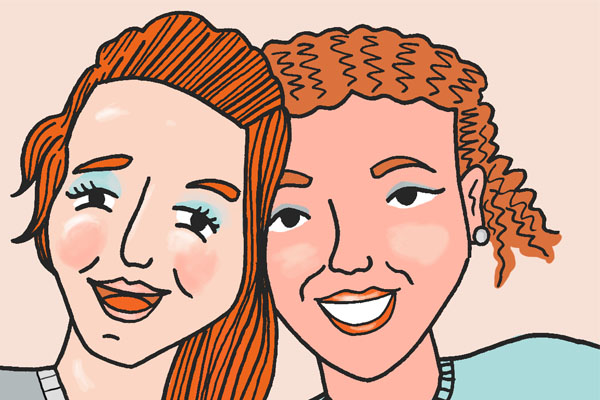 Photo of Friends
Photo of Friends
“When we went to sixth form, with the change of routine, my friends have forgotten there are things I can’t access. I let it lie, we were just getting into the routine, but when it went on I thought I have to make them aware. So I said “You’re leaving me out.” In the sixth form canteen there are high stools they’ve been sitting on. Not that I can’t get up, just that it would be a bit chaotic in a busy dining room, with me making my way through, because they’re in the corner of the room, and it’s difficult for me to get through. That led me to think I need to say something to them. But you can’t expect people to remember all of the time about what you can and can’t do.”
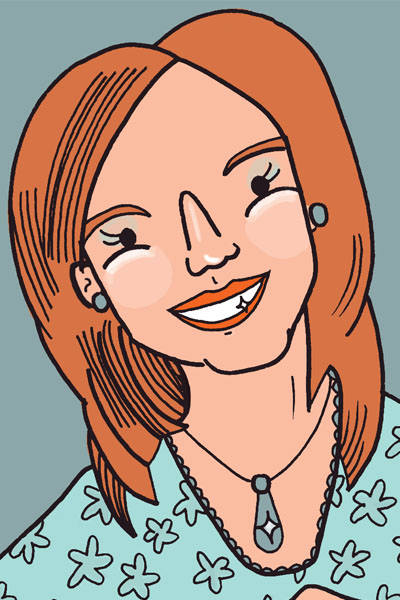 Photo of Mother
Photo of Mother
“My mum’s been there for us all the time, all what I’ve been through, and since I was little. She always takes us places and drops us off, and when I was getting my operations she would always be there, she’d stay in the hospital, like, straight afterwards, like, she would have her own bed and that. She would stay over to make sure I was okay… If I was upset or anything like that, she would make us feel better and when I came home from the hospital, when I had my leg in the cast she did stuff for us.”
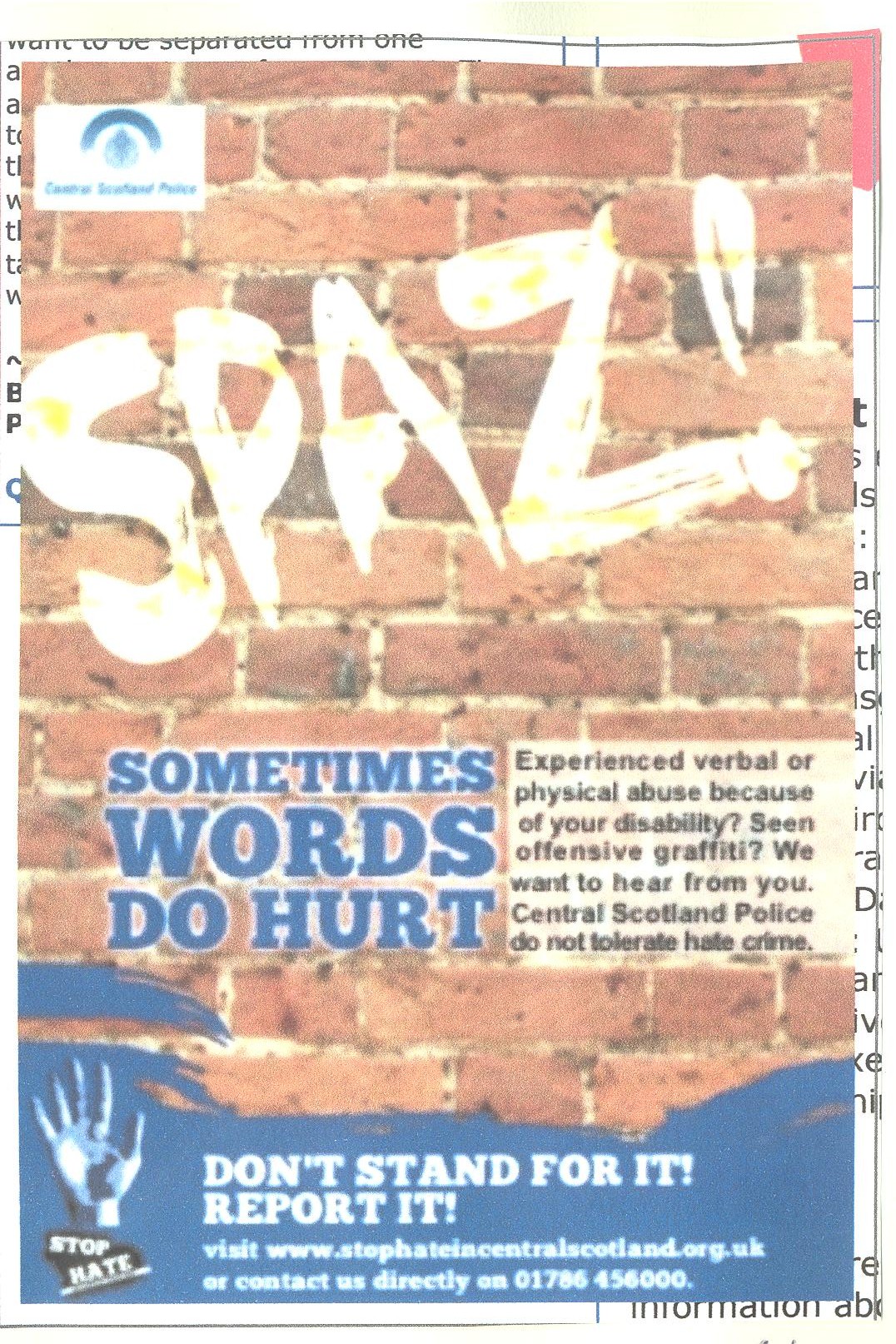 Postcard (Attitudes are the real disability)
Postcard (Attitudes are the real disability)
“I’ve been called that quite a lot. I’ve been called that when I’m out with canes. I was walking down the stairs at college and my leg jerked, and these kids called me. It makes me feel very angry and upset, and I think why call people that? That’s just a horrible name. I think it’s rude, impolite. I actually burst out in tears when I got home. I got very angry and then cried ‘cos I hate, I can’t bear that word, hate it. Just don’t think it’s, nice.”
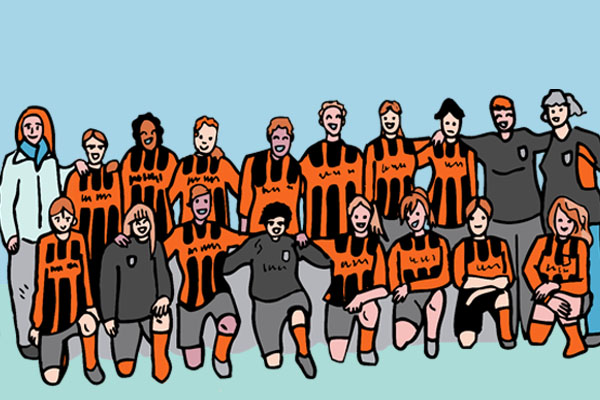 Sports Trophy
Sports Trophy
“I’ve played with the team for about a year now. I joined last season, and it’s one of the things I love doing. We’re like a big family, and even though we lose more often than we win, it’s good banter and a load of fun. I’ve always played for able bodied teams, and I’ve never had any trouble with my disability playing for them. It’s nice to be doing something where they’re not checking up on us all the time, they let us get on with it, and wait for me to tell them rather than them asking me things. I’ve got lots more freedom when I’m there, it’s pushed to one side and you’re just there, having a good time.”
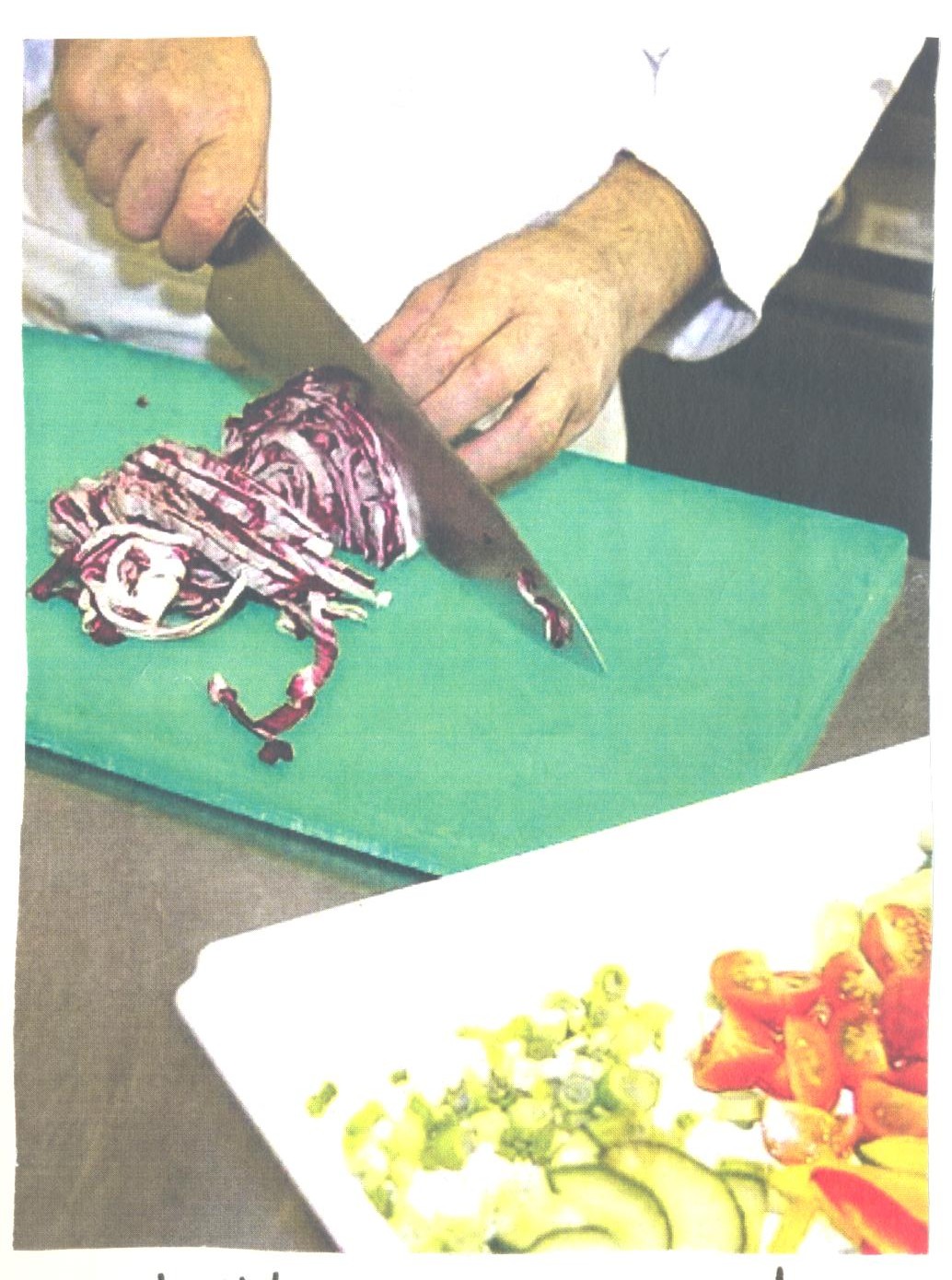 Sweeties
Sweeties
“If I can’t do things my grandma will want to do it for me, but I’ll say to her ‘No, I want to try and do it myself.’ I tell her so I can do it myself and adapt it to the way that I can do it. Just so I can get that independence. Like if I’m cutting up a piece of meat and she sees I’m struggling she’ll look at us as if to say ‘Oh you know do you want me to do it for you’, and I’ll be like ‘No I’ll, I’ll try it myself.’ If I can’t do it then I’ll ask her to do it. It’s very rare she needs to step in, ‘cos I’ve adapted a way to do it. It’s just certain times I need that bit of extra help.”
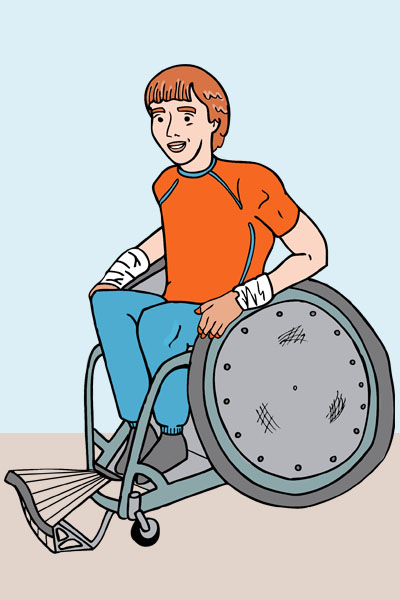 Swimming Goggles
Swimming Goggles
“If people had never seen me walk they might think how’s he gonna do that, but people who know me know that I can do it. I’ve got really good hands. But if someone just walked in and didn’t know me they might wonder how I’m gonna do things like play wheelchair football and things like that. I’m a great advert for people with cerebral palsy, ‘cos I show that all cerebral palsy kids can do things, get out the house and do stuff. It shows that people with cerebral palsy can play a sport or do something.”
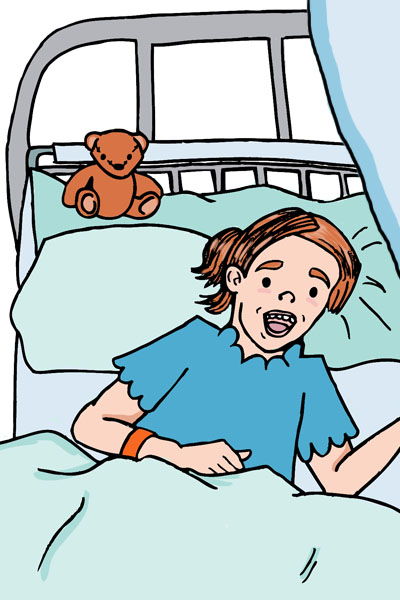 Teddy Bear
Teddy Bear
“They scare me, hospital brings back bad memories. ‘Cos I think hospitals, pain; doctors, operations, doctors, pain. So basically they hurt me because that’s what it’s been like with my surgery, being in pain after and being very worried and things. It’s physical pain but it’s mental pain, memories of me being in pain, like the mental pain, me getting needles, or being in pain. I remember when I was younger I used to get these Botox injections in my leg when I was awake and I can still feel the pain, I can feel the pain from this day of the needle going in, like tattooed on my brain.”
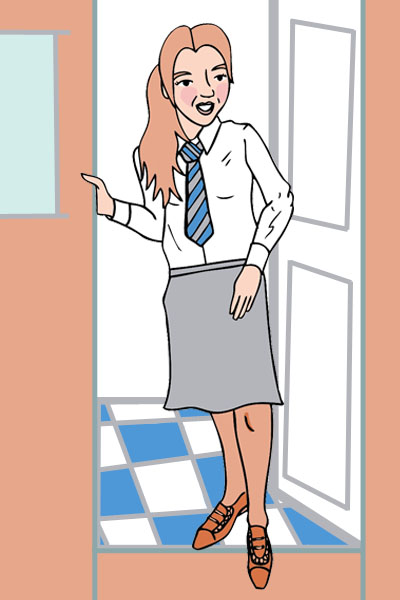 Toy Car
Toy Car
“I hope that I’ll be able to learn to drive. It looks from what my friends got that an abled bodied person would be able to drive it, she’s got a lever for a brake and then she’s got her accelerator which is like another metal wheel behind the wheel of the car, so she just like pulls it towards the wheel and then it kind of just accelerates from there. I’d like to drive, it would make me feel more grown up. Obviously I’d like to drive in the future for when I get my own job and have my own children. I won’t be able to ask my mum if she can give them lift to school, so I’ll need to learn to drive eventually .”
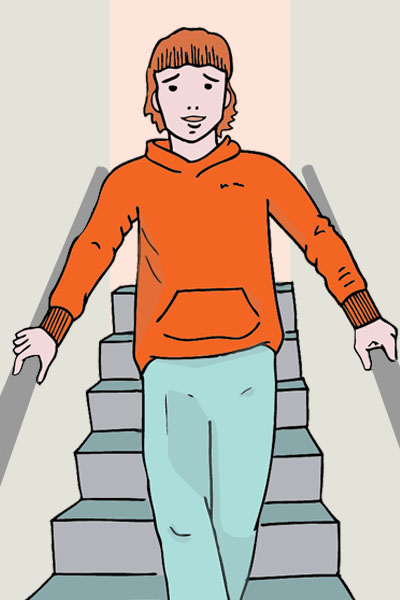 Walking Stick
Walking Stick
“This is how I get down stairs. I lift myself up on the banister rails and just fly down. Sometimes I lose a bit of grip, so I stand back, get my grip back and slide back down. I don’t even know why I started doing that. Due to going to the gym and rugby I’ve got a lot stronger and just one day, well like I say I used to go to scouts and we had done a lot of walking, so I probably did walk a mile for one day, and I was really tired and my legs and my knees were really hurting, I could barely walk and I just done it, you know, something easier to do.”
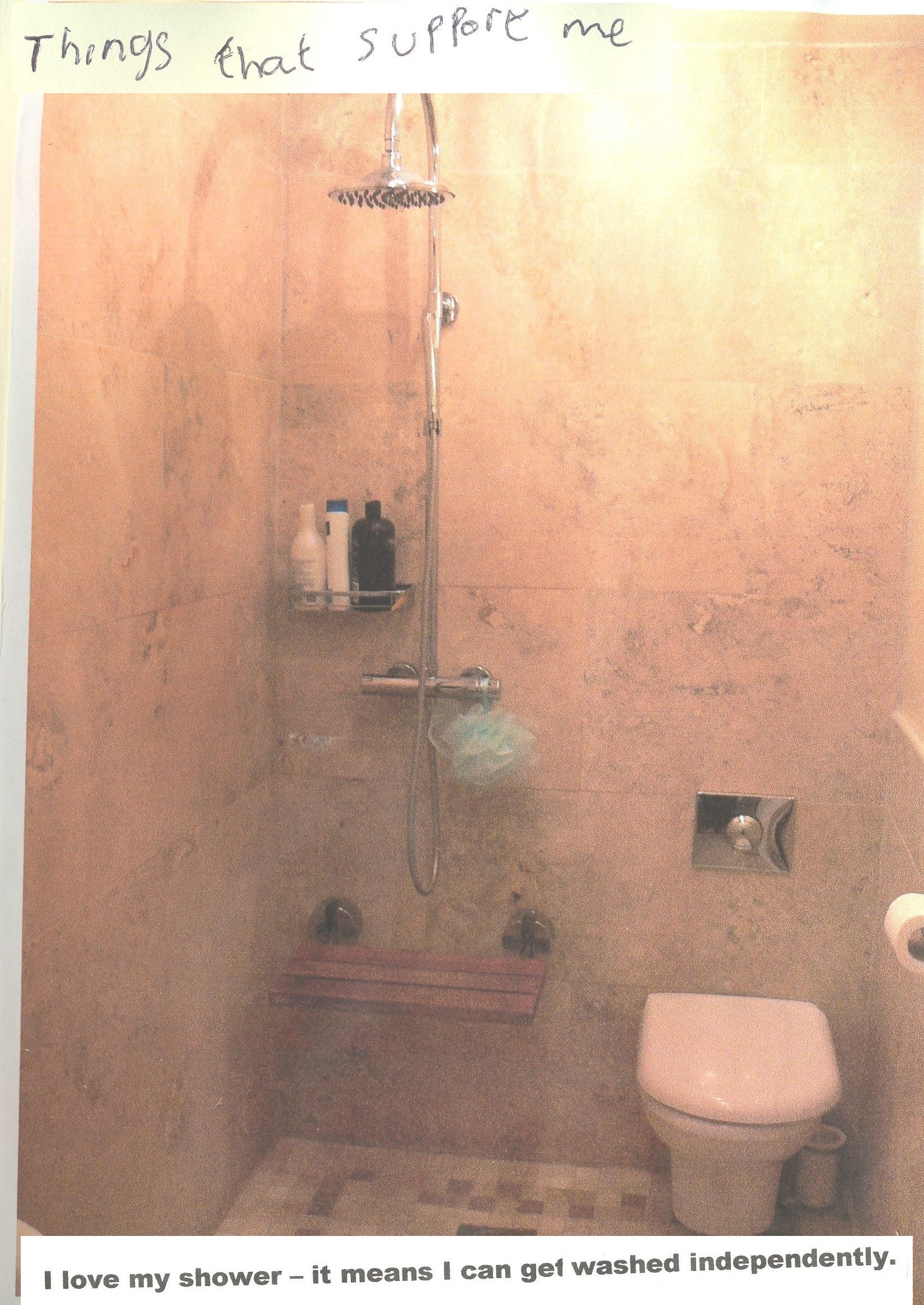 ‘Radar’ Key
‘Radar’ Key
“They made a wet room for me so I can shower for myself. There’s a tiny little step to keep water from flowing out of the bathroom. The floor is better, it’s less slippy, and the seat pulls down so I can sit, ‘cos I can’t stand up and wash myself, ‘cos I lose balance. It’s very good for me, ‘cos I’m independent. I can do it by myself, and go in to the shower. I don’t really need help now. I need the odd help if I’m really, really wobbly, but apart from that I’m alright.”
